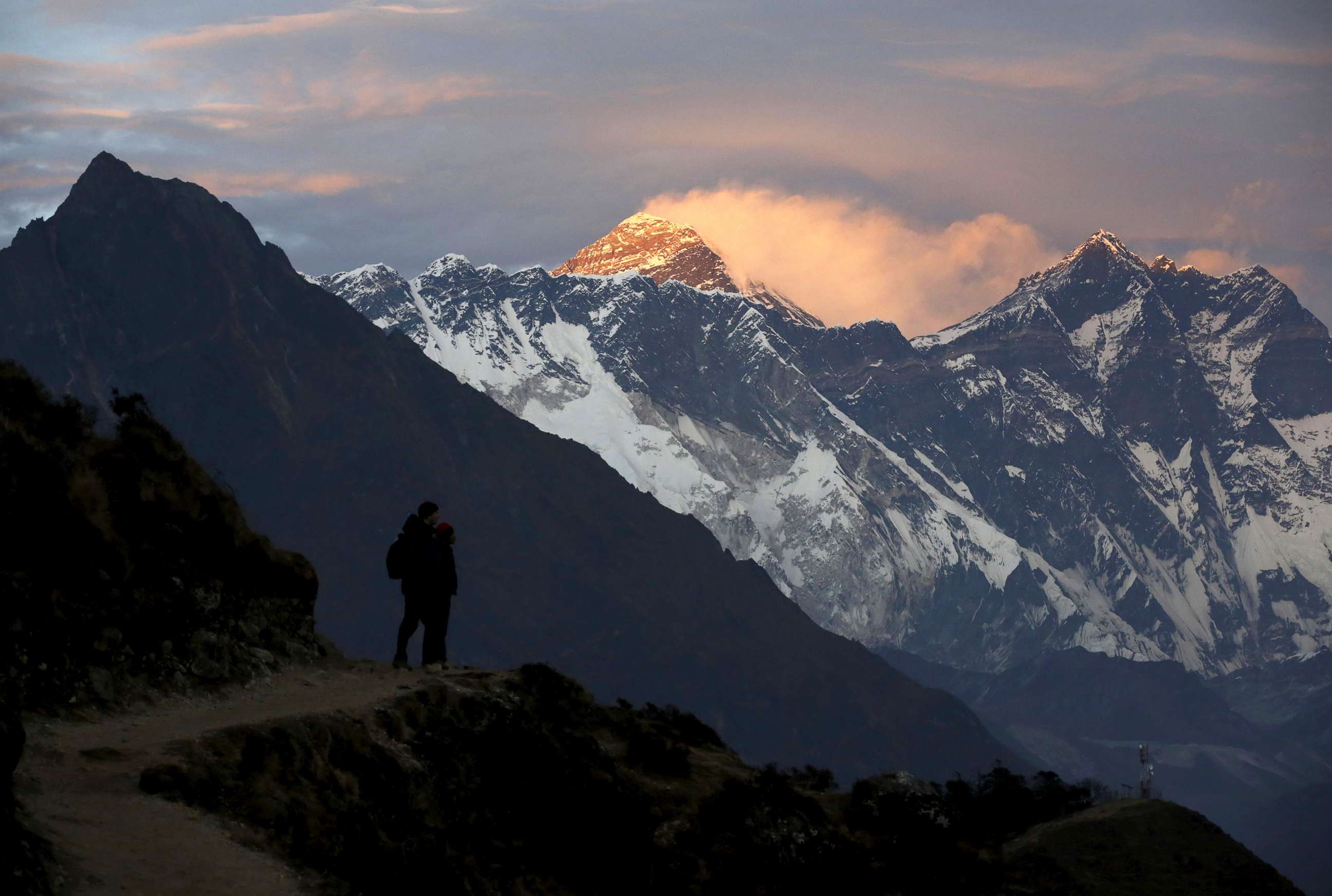Mount Everest shut down to climbers amid coronavirus outbreak
Nepal and China decided to suspend climbing permits for the spring.
China and Nepal are not giving permits to climbers hoping to summit Mount Everest this season.
The reports that climbers won't be able to make attempts from either the northern, Chinese-controlled Tibet side of the mountain or the southern, Nepal side come as the world combats the novel coronavirus pandemic, which originated in China.
The Nepal Tourism Board announced Friday that "all the permits for mountaineering expeditions issued and to be issued for spring 2020 are suspended" as part of "precautionary measures following the COVID-19 outbreak."
Tibet Sports Administration's WeChat account posted a statement Thursday signed by the Tibet Autonomous Region Mountaineering Center and the China Tibet Mountaineering Association that said they're suspending all foreign climbing expeditions for the 2020 spring season "in order to ensure the safety and physical health of mountaineers, and to maintain the interests of mountaineering team organizers and fans." Permits for the north side of Everest are given by the China Tibet Mountaineering Association.

"While canceling a climb is never an outcome we want, this time, it's the responsible thing to do," Adrian Ballinger, CEO of Alpenglow Expeditions, said in a statement Wednesday. "A COVID-19 outbreak at base camp would be dangerous and potentially devastating."
Speaking to ABC News last week, Ballinger said that an outbreak at base camp -- on either side of the mountain -- would be "quite dangerous."
Although noting that people who attempt Everest are typically healthy, putting them less at risk of more fatal cases of the coronavirus, Ballinger said, "We'd be combining coronavirus, an upper respiratory infection that sometimes goes to the lungs, with an already dramatically reduced effectiveness upper respiratory system due to the altitude."
Outside of questions tied to health, travel restrictions would have dramatically altered Everest's environment for this climbing season, typically from April to May, with peak times for summiting in mid- to late-May. While 2019 was an especially deadly Everest season due to overcrowding and inexperienced climbers, 2020 was looking to be "very special," Lukas Furtenbach of Furtenbach Adventures told ABC News last week, as fewer people would have made it to base camp.
Many would-be Everest climbers had already canceled their trips, either because they're from countries like China, South Korea and Italy, which have been hard-hit and are facing travel restrictions, or because they're fearful of travel.
Furtenbach had initially moved his expedition from the north side of Everest to the Nepal side, citing logistical challenges and the possibility of a trip having to be extended due to quarantines. However, with Nepal's announcement, he's now out of options.
"This is disappointing news for both our expedition leaders and our clients who have trained for months for this year’s climb," he said in a statement following Nepal's announcement.
"[People] think summiting Everest comes down to whether they climb well at altitude or not on summit day," Ballinger said. "But what I've learned over all these years is actually being successful on Everest has to do with so much more than just walking uphill on summit day, it's the politics and health and random failures of equipment because the environment is just so harsh on us. And I kind of love that. Everest is still not easy."
Tune into ABC News Live at noon ET every weekday for the latest news, context and analysis on the novel coronavirus, with the full ABC News team where we will try to answer your questions about the virus.
